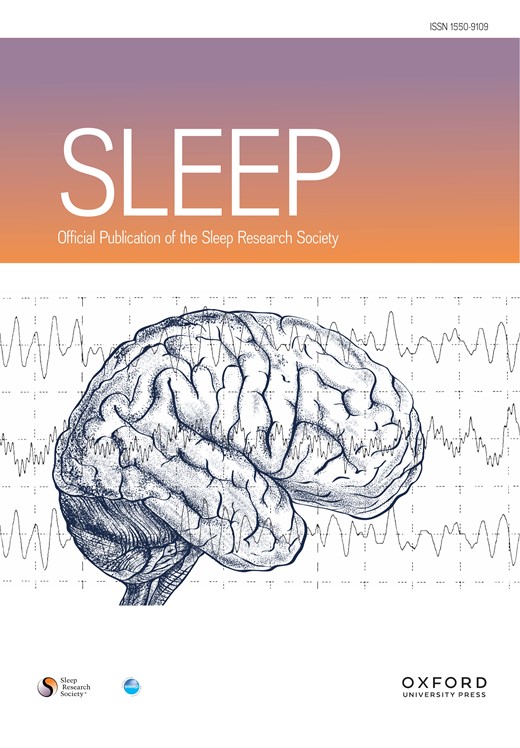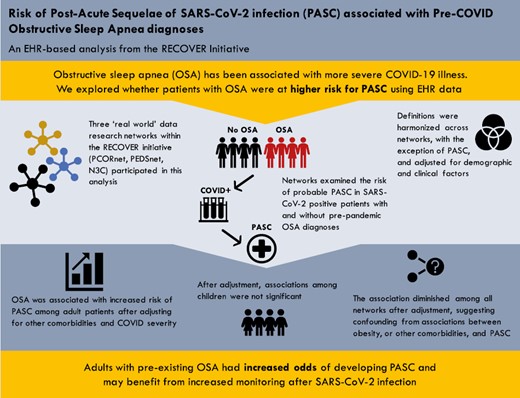-
Views
-
Cite
Cite
Hannah L Mandel, Gunnar Colleen, Sajjad Abedian, Nariman Ammar, L Charles Bailey, Tellen D Bennett, M Daniel Brannock, Shari B Brosnahan, Yu Chen, Christopher G Chute, Jasmin Divers, Michael D Evans, Melissa Haendel, Margaret A Hall, Kathryn Hirabayashi, Mady Hornig, Stuart D Katz, Ana C Krieger, Johanna Loomba, Vitaly Lorman, Diego R Mazzotti, Julie McMurry, Richard A Moffitt, Nathan M Pajor, Emily Pfaff, Jeff Radwell, Hanieh Razzaghi, Susan Redline, Elle Seibert, Anisha Sekar, Suchetha Sharma, Tanayott Thaweethai, Mark G Weiner, Yun Jae Yoo, Andrea Zhou, Lorna E Thorpe, on behalf of the RECOVER Consortium, Risk of post-acute sequelae of SARS-CoV-2 infection associated with pre-coronavirus disease obstructive sleep apnea diagnoses: an electronic health record-based analysis from the RECOVER initiative, Sleep, Volume 46, Issue 9, September 2023, zsad126, https://doi.org/10.1093/sleep/zsad126
Close - Share Icon Share
Abstract
Obstructive sleep apnea (OSA) has been associated with more severe acute coronavirus disease-2019 (COVID-19) outcomes. We assessed OSA as a potential risk factor for Post-Acute Sequelae of SARS-CoV-2 (PASC).
We assessed the impact of preexisting OSA on the risk for probable PASC in adults and children using electronic health record data from multiple research networks. Three research networks within the REsearching COVID to Enhance Recovery initiative (PCORnet Adult, PCORnet Pediatric, and the National COVID Cohort Collaborative [N3C]) employed a harmonized analytic approach to examine the risk of probable PASC in COVID-19-positive patients with and without a diagnosis of OSA prior to pandemic onset. Unadjusted odds ratios (ORs) were calculated as well as ORs adjusted for age group, sex, race/ethnicity, hospitalization status, obesity, and preexisting comorbidities.
Across networks, the unadjusted OR for probable PASC associated with a preexisting OSA diagnosis in adults and children ranged from 1.41 to 3.93. Adjusted analyses found an attenuated association that remained significant among adults only. Multiple sensitivity analyses with expanded inclusion criteria and covariates yielded results consistent with the primary analysis.
Adults with preexisting OSA were found to have significantly elevated odds of probable PASC. This finding was consistent across data sources, approaches for identifying COVID-19-positive patients, and definitions of PASC. Patients with OSA may be at elevated risk for PASC after SARS-CoV-2 infection and should be monitored for post-acute sequelae.










Comments